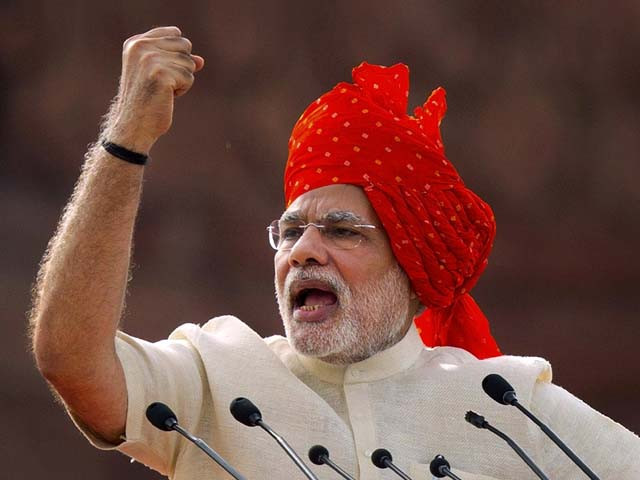Muslim heritage threatened as Modi-led India embraces Hindutva agenda
Report highlights demolition of Muslim homes as punishment; rebranding Muslim communities as 'Mini Pakistan'.

Since Narendra Modi's rise to power in 2014, India’s socio-political landscape has increasingly reflected the ideological influence of the Rashtriya Swayamsevak Sangh (RSS).
Key policies such as the abrogation of Article 370, the Citizenship Amendment Act (CAA), and the Ram Janmabhoomi project have been hailed by supporters as milestones but criticised by rights groups for marginalising Muslim communities.
A recent report by The Wire highlighted systematic demolitions of Muslim homes as collective punishment, rebranding Muslim-majority areas with derogatory names like "Mini Pakistan," and economic disenfranchisement through boycotts and harassment of Muslim businesses.
Urban development has also become a focal point for Hindutva policies.
Efforts to rename streets and cities with Islamic origins, such as changing Allahabad to Prayagraj, are described as attempts to erase Muslim heritage.
The demolition of historic mosques and shrines under the guise of urban planning or security concerns further exemplifies this trend, the report says.
These measures are seen as steps towards transforming cities into uniform "Hindutva spaces."
The Wire notes that occupations traditionally associated with Muslims, such as the leather and meat industries, are being targeted with restrictive laws and communal boycotts.
Street vendors and small businesses have also faced increasing harassment.
Critics argue these policies represent a calculated marginalisation of India’s Muslim minority, raising fears of systematic erasure of identity and culture.
"This trajectory risks heading towards an apartheid-like reality," the report warns, calling for international intervention.
Modi accuses Pakistan of using 'terrorism, proxy war' for relevance
Last year, Indian Prime Minister Narendra Modi stated that Pakistan is trying to stay relevant through "terrorism" and "proxy war" but its "unholy plans" will never succeed.
The nuclear-armed South Asian neighbours share an uneasy relationship and India has, for decades, accused Pakistan of backing Islamist militants fighting its rule in Kashmir, the Himalayan region both claim in full but rule only in part.
Pakistan denied the accusations, saying it only provides diplomatic and moral support to Kashmiris seeking self-determination in the Muslim-majority region.
Modi's comments came at an event to mark the 25th anniversary of India's short military conflict with Pakistan in the Himalayan region of Kargil. The arch rivals have also fought three wars, two of them over Kashmir.
They also come in the aftermath of a spate of militant attacks in the Indian Illegally Occupied Jammu and Kashmir (IIOJK) region, with almost a dozen Indian soldiers killed this year.
Modi said Pakistan was humiliated whenever it tried to further its plans but had "not learned anything from its history".
"I want to tell these patrons of terrorism that their unholy plans will never be successful...Our brave (forces) will squash terrorism, the enemy will be given a befitting reply," he said.



















COMMENTS
Comments are moderated and generally will be posted if they are on-topic and not abusive.
For more information, please see our Comments FAQ